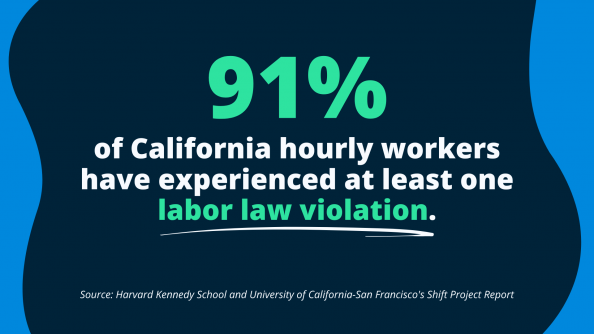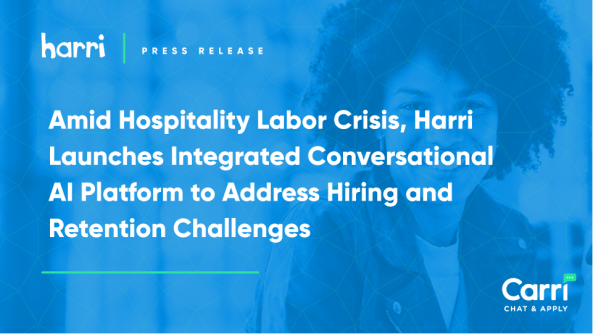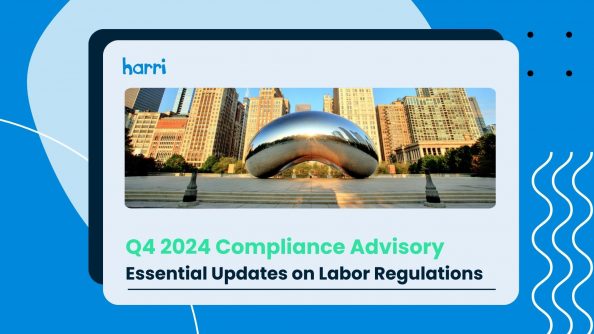Revolutionizing HR in Hospitality: Embracing Talent Intelligence for Future-Ready Workforce Management
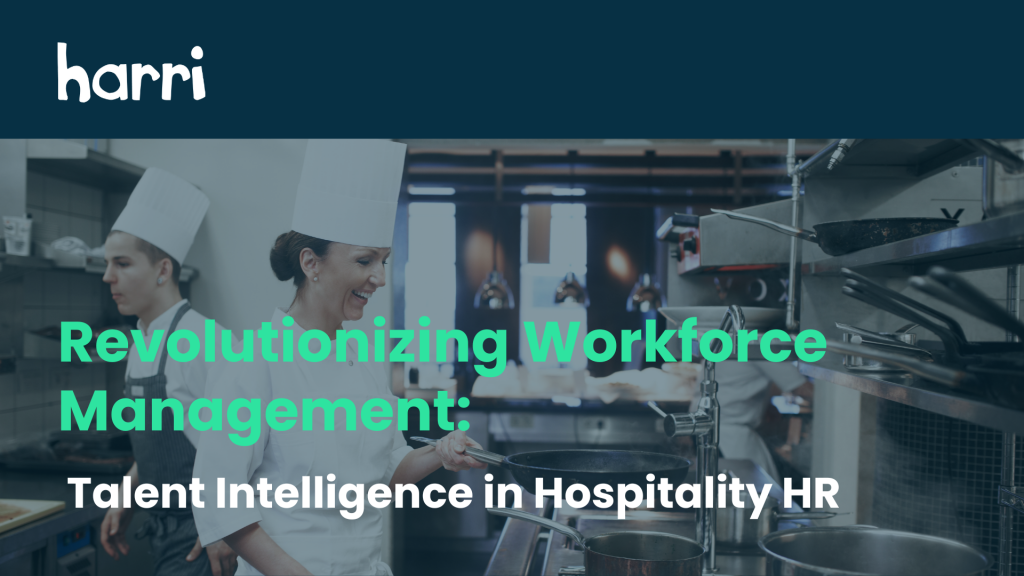
- By Harri Insider Team | November 1, 2023
Fueled by dynamic interactions and operational demand in hospitality, traditional talent management strategies are rapidly losing their effectiveness. The pandemic and subsequent shifts in the workforce have rendered the “pre-hire to retire” model and job hierarchy systems obsolete. As remote work, high turnover, and the continuous need for reskilling become the norm, it’s clear that a new approach is needed. Talent intelligence emerges as a critical solution, providing real-time insights and predictive capabilities that are essential for navigating today’s complex work landscape.

The Fall of Traditional Talent Management
Diagnosing the Problem
The hospitality industry’s vibrancy and relentless pace have laid bare the inadequacies of traditional talent management strategies. According to the Mercer 2023 study, 81% of employees across various sectors are experiencing burnout, with nearly half considering a job change despite a 12.1% increase in wages in 2021. This dissonance is even more pronounced in the hospitality sector, where the intricate dance of guest interactions and back-of-house operations demands a workforce that is not just present, but engaged, skilled, and aligned with the company’s mission.
The Frontline Worker Dilemma
Disconnected from their company’s larger purpose and weighed down by increasing workloads, frontline worker responsibilities have grown beyond what they can manage. These are the individuals who bring the hospitality experience to life, yet they are the most vulnerable to the industry’s current upheavals. Addressing their needs and reconnecting them to the heart of the hospitality mission is not just a matter of workforce management—it is essential for maintaining the industry’s standard of excellence and ensuring its future vitality.
Talent Intelligence as the New Business Intelligence
A Paradigm Shift
Talent intelligence (TI) represents a seismic shift in how the hospitality sector approaches workforce management and business strategy. Moving beyond the limitations of traditional talent management, talent intel emerges as the new form of business intelligence, tailor-made for the dynamic and demanding nature of the hospitality industry. With its ability to provide real-time insights and predictive analytics, TI empowers operators to not just react to changes, but to anticipate them, enabling a level of agility and foresight that was previously out of reach.
This proactive approach allows for immediate adjustments and strategic shifts, ensuring that the workforce is not just aligned with current needs, but is also prepared for future challenges. The result is a more resilient and adaptable workforce, ready to meet the evolving demands of the hospitality sector head-on.
Connecting with the Hard-to-Reach Team Members
The hospitality industry faces a unique challenge: a significant portion of its workforce operates away from desks, resulting in untapped data and missed opportunities for engagement. Talent Intelligence presents an innovative solution, seamlessly integrating into the daily workflows of these hard-to-reach employees.
The Challenge: Workers without Desks Represent Untapped Data
For the vibrant hospitality sector, frontline staff are the heart of operations. Yet, they remain disconnected, their valuable insights and experiences lost due to the lack of proper channels for data collection and communication.
The Need: Accessing Elusive Data
To truly transform workforce management and enhance employee engagement, there is a pressing need to bridge this gap and tap into the wealth of data these deskless workers hold.
The Solution: Integration into Daily Workflows
Talent intelligence provides a seamless solution, creating touchpoints that meet your team where they are by integrating naturally into the daily tasks of frontline staff. This integration ensures that data collection and employee engagement become integral parts of their workday, not additional burdens.
The Balance: Merging Obligation with Opportunity
The key to successfully implementing talent intelligence lies in striking the right balance between what employees are required to do and what can enhance their work experience. A prime example is integrating TI tools into the process of clocking in and out— a mandatory daily task. This integration not only ensures consistent data collection but also provides employees with immediate access to support and resources, turning a routine task into an opportunity for engagement and growth.
Through this strategic integration and balance, talent intelligence redefines the employee experience for deskless workers, ensuring that their voices are heard, their needs are met, and their contributions are valued. This, in turn, fosters a more engaged, resilient, and adaptive workforce, propelling the hospitality industry forward in an era of constant change.
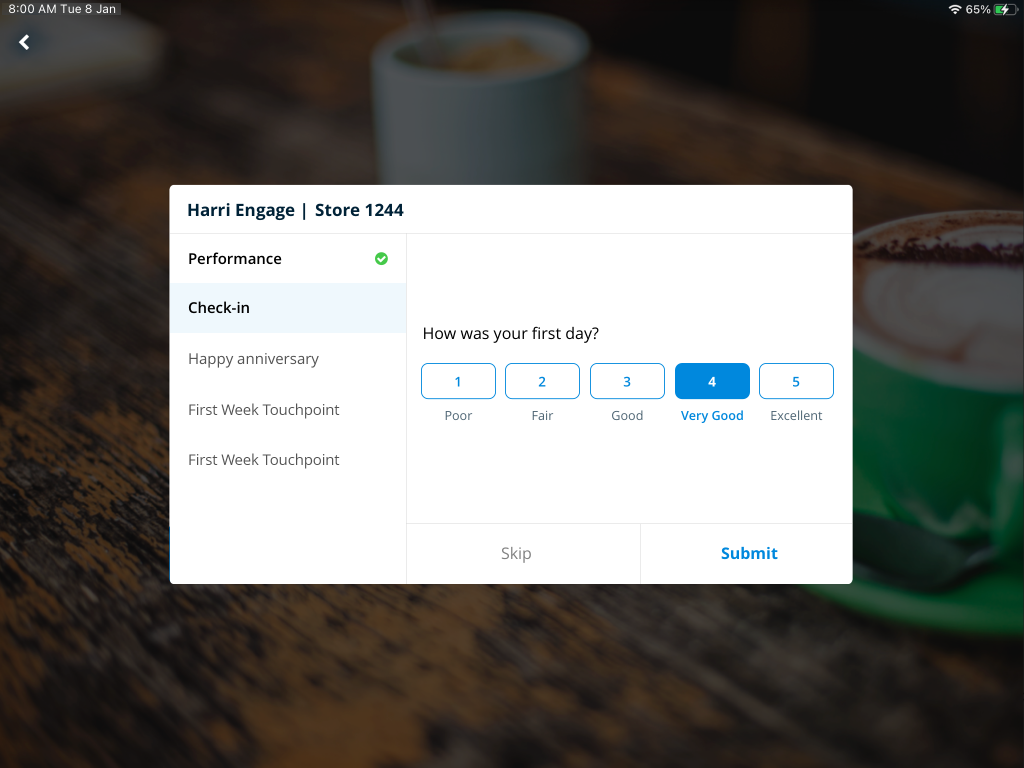
The Strategic Advantages of Talent Intelligence
From Reactive to Proactive: A Case for Change
Traditional talent management often leaves businesses scrambling to react to workforce issues as they arise. Talent intelligence offers a proactive and strategic way forward, transforming how operators anticipate challenges and implement solutions.
Consider the issue of unionization—a complex and multifaceted challenge within the industry. Talent intelligence does not aim to prevent unionization outright, but rather, it provides a platform for understanding the root causes that drive employees toward unionization, such as dissatisfaction, lack of engagement, or inadequate working conditions.
By leveraging real-time data and predictive analytics, operators can identify potential areas of concern before they escalate, creating an environment where issues are addressed promptly and effectively, fostering a positive work culture that may reduce the need for escalation.
Future-Proofing with Talent Intelligence
In an era teeming with relentless change and pervasive uncertainty, possessing the agility to master future challenges becomes absolutely vital, injecting a thrilling sense of urgency and importance into every strategic move we make. Talent intelligence empowers operators to do just that, fostering a culture of resilience, adaptability, and innovation.
In the context of unionization, talent intelligence becomes a vital asset for maintaining open channels of communication and ensuring that employee needs and concerns are heard and addressed. This proactive stance not only mitigates the risk of labor disputes but also contributes to a more harmonious and productive workplace.
Moreover, talent intelligence provides invaluable insights for anticipating broader industry trends and shifts, enabling businesses to stay one step ahead in a sector where the only constant is change. Whether it’s adapting to new labor laws, navigating shifts in employee expectations, or responding to economic fluctuations, talent intelligence ensures that operators are equipped to handle whatever comes their way with confidence and strategic acumen.
By leveraging talent intelligence, the hospitality industry can transform potential points of contention like unionization into opportunities for growth and positive change, ensuring a brighter, more resilient future for businesses and employees alike.
The fall of traditional talent management signals not an end, but a beginning—a shift from reactive practices to proactive strategies that embrace the unique challenges and opportunities of the hospitality sector. It’s a move from managing workforce issues as they arise, to anticipating them and implementing solutions that foster a positive, engaging, and resilient work environment.
Embracing the Future with Talent Intelligence
By seamlessly integrating into the daily workflows of frontline employees and creating real-time touchpoints, talent intelligence bridges the gap between employers and deskless workers, ensuring that every voice is heard and every contribution is valued. It turns routine tasks into opportunities for engagement and growth, crafting an employee experience that is as enriching as it is efficient.
The strategic advantages of talent intelligence are clear. From navigating the complexities of workplace disputes to future-proofing businesses against unforeseen challenges, this approach equips operators with the tools they need to lead with confidence and innovate with purpose. It’s about building a workforce that is not just prepared for the future, but that actively shapes it, driving the hospitality industry forward in an era of constant change.












